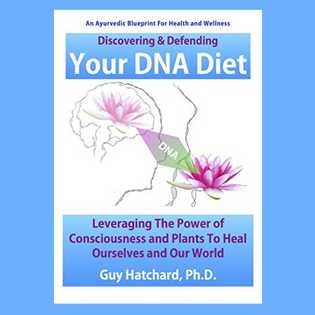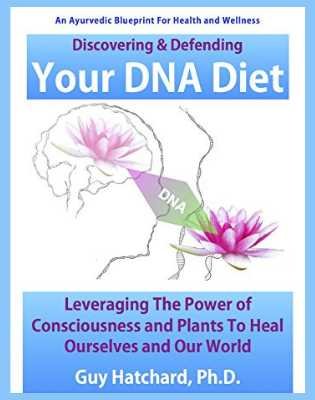An update from the Covid Royal Commission of Inquiry
This week my closest friend and colleague from university days passed away from cancer. It came on very suddenly, with no time to say goodbye or offer support. Although we both agreed about the lab origin of COVID-19 because of our mutual connections with the biotechnology research community, unfortunately, we differed in our attitude to the COVID-19 vaccine. My friend trusted his doctor’s advice.
This article is also available as a PDF document, to print, download or share.
The effects of gene editing cannot be contained, any mistakes can spread without limit and persist through generations. Nothing highlights this more than the very long tail of the pandemic. Highly vaccinated countries are still suffering elevated rates of excess deaths and record levels of hospitalisation years later. The BBC reported in March for example: “Sick people leaving workforce at record highs“.
When I spoke about my friend’s death to an acquaintance working for the health service, they mentioned their friend and others who had similarly passed away unexpectedly and too soon. They asked me, “Had I heard of the term sniper alley?” and explained that it is as if we are all in a narrow alleyway being shot at from a hidden location. You never know who will be hit next.
Mainstream media is full of tragic cases these days. This article in the New Zealand Herald entitled “Bowel cancer rates rising among New Zealanders under 50 years old, driving calls for even lower screening age” is typical. The article reports a study showing that rate of early-onset bowel cancer increased steadily in New Zealand between 2000 and 2020. In other words, in common with many Western countries, more people under the age of 50 are tragically diagnosed with bowel cancer. The rate had been increasing by 2.3% per year.
The study covers the twenty-year period prior to the pandemic, so why am I writing about it? One of the authors of the study, Professor Frank Frizzle, revealed to the Herald that the rate of increase has suddenly accelerated beyond the study period into 2022. He also said that little is known about what is driving the increase here and overseas. This is particularly concerning since young people are smoking less and eating less meat, previously identified risk factors for bowel cancer.
If Frizzle is looking for obvious causes of the long term pre-pandemic trend, he might investigate a recent article from the Brownstone Institute entitled “Prescription Drugs Are the Leading Cause of Death” or he might read this very recent study entitled “Exposure to pesticides and risk of colorectal cancer: A systematic review and meta-analysis” which found an association between insecticide and herbicide exposure and colorectal cancer.
However, neither of these possible risk factors has suddenly accelerated in 2022, so why have the rates of bowel cancer been accelerating recently in New Zealand? We don’t know because publicly available Health Service cancer data only goes to the end of 2021. In fact, we don’t know why our hospitals are overcrowded. We don’t know which specific disease rates are higher. Apparently, Professor Frizzle has more up-to-date information, but we don’t. The public is left with gossip from inside the medical profession that we are now living in sniper alley, tragic tales in mainstream media, and heart-rending personal anecdotes like mine and yours.
For the record, a study of cancer mortality in Japan was published in the journal Cureus in April entitled “Increased Age-Adjusted Cancer Mortality After the Third mRNA-Lipid Nanoparticle Vaccine Dose During the COVID-19 Pandemic in Japan”. The study found that following vaccination with a third mRNA vaccine dose in 2022, researchers observed “significant excess mortalities” for all cancers.
Well, you might think, we have an ongoing public inquiry into the COVID-19 pandemic taking place here in New Zealand, surely that is going to take note of overseas research findings and answer our questions? Short answer: Not likely based on present evidence. Professor Tony Blakely, Chairman of the Royal Commission of Inquiry into the Covid Response, issued a public statement on 7th May summarising progress so far with the move to revise its terms of reference. He managed all 900 words without once mentioning COVID-19 vaccine injury.
Blakely identified ‘vaccine effectiveness’ as a topic that might be included in the inquiry, but despite receiving a petition containing over 35,000 signatures expressing concern about vaccine safety, these risks are not mentioned once in his progress report. Professor Blakely seems determined to keep mum and continue to swim against the tide of concern. Despite being an epidemiologist, Prof. Blakely doesn’t mention what has been described elsewhere as the baffling association between excess mortality and Covid vaccination rates. Is he the right man for the job? You tell me.
The New Zealand Herald reprinted an article from the UK Daily Telegraph on Wednesday entitled “AstraZeneca withdraws Covid vaccine, months after admitting rare side effect“. Let’s have more honesty like this. The article preamble notes that 9087 doses of the vaccine were administered in New Zealand, with 319 recipients reporting adverse effects. In the UK, it is officially linked with at least 81 deaths. 50 injured recipients are currently engaged in a class action against the company. These figures are likely to be the tip of the iceberg.
In New Zealand the predominant vaccine has been the mRNA Pfizer COVID-19 vaccine. 65,000 adverse effects have been reported to Medsafe, and Pfizer has admitted that there are side effects, including myocarditis, a form of heart disease. A prospective study in Thailand found measurable cardiovascular effects in a staggering 29% of subjects receiving the Pfizer vaccine, but this COVID-19 vaccine has not been withdrawn (review more links here). It is still being promoted here as ‘safe and effective’. New Zealand remains stuck in the COVID dark ages.






